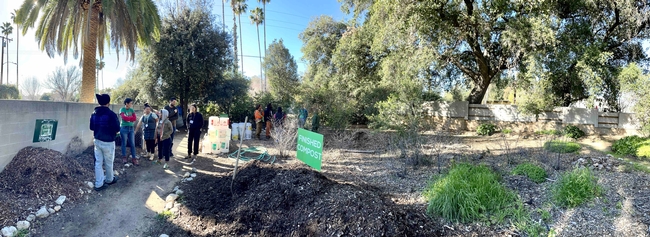- Author: Deborah Schnur
I couldn't believe it when I heard that COMPOST2023, billed as “the world's largest composting event”, was going to be held in Ontario, California in January. What were the odds that a composting enthusiast such as myself would be so close to the action? I'm so glad I was able to attend as a volunteer! This year's theme was “Capturing Carbon Renewing Soil”, emphasizing the importance of composting in reducing carbon emissions and enhancing soil health.
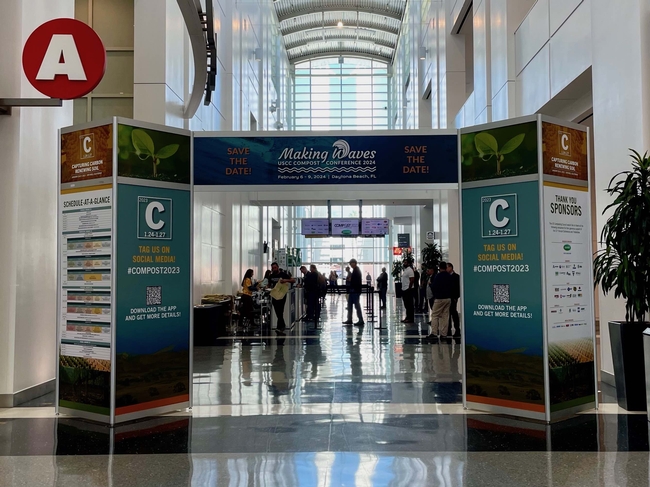
COMPOST2023 ran from Monday, January 23rd to Friday, January 27th, starting with two days of pre-conference activities. On the first day, I attended the Cultivating Community Composting Forum at the Ontario Convention Center. The second day was a Field Day with bus tours of local composting sites. I attended conference sessions at the Convention Center on Wednesday and Thursday and volunteered for Demo Day at One Stop Landscape Supply on Friday. It was a lot to absorb in such a short time.
The Institute for Local Self-Reliance (ILSR) coordinated the Cultivating Community Composting Forum and related Field Day activities. ISLR's Composting for Community Initiative works to advance “local composting to create jobs, enhance soils, protect the climate, and reduce waste through advocacy, training, research, demonstration sites, and coalition building”. The goals of the forum were to share best practices and build support for small-scale, community-based composting.
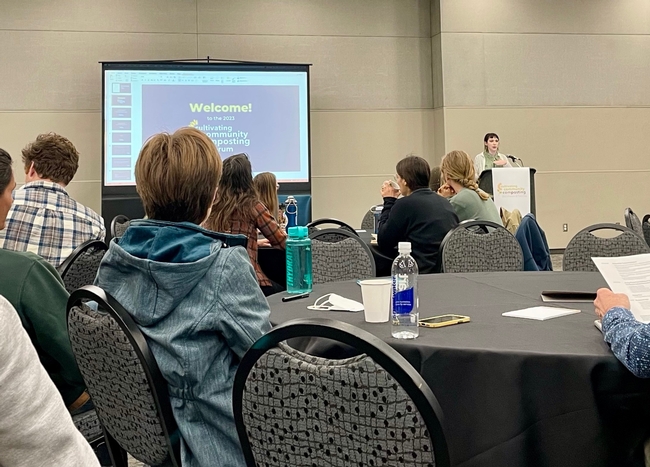
After a short break, the forum attendees reconvened for two peer-to-peer chat sessions on topics including scaling up, business and mission planning, funding and financing, and communications. I attended the sessions on community building and composting methods and best practices. These chats gave me the opportunity to share experiences with composters from across the country–from Peels & Wheels Composting in New Haven, Connecticut to ReMark Composting Solutions in Detroit to Hart's Worm Farm in Irvine.
The afternoon agenda consisted of two concurrent presentation sessions followed by two panels. One of the most memorable presentations was “Generating Excitement About Community Composting in an Urban, Chronically Marginalized Community” by Marvin Hayes and Kenny Moss of the Baltimore Compost Collective. Marvin is the Executive Director of the Collective which collects food scraps from residences and composts them at the Filbert Street Community Garden. Kenny, a student leader in the youth entrepreneurship program, helps manage the composting operations. In a catchy poem, Marvin described the role of composting this way: “Learn so we don't have to burn. Starve the incinerator. Feed the soil. Feed the Community! Clean air for Baltimore.” In 2022, the Baltimore Compost Collective served over 300 customers and increased its waste diversion by 40%.
Kourtnii Brown told the story of how the California Alliance for Community Composting (CACC) launched 120 community composting hubs with a $1.54M Community Composting for Green Spaces grant from CalRecycle. The network of composting sites spanned the state in 6 regions: the Bay Area, Fresno & Central California, the Inland Empire, Greater Los Angeles, Sacramento & Northern California, and Greater San Diego. CACC provided on-site support with skilled staff, infrastructure, community building, and program development. In the summer of 2021, CACC held a Soil Stewardship Training retreat (also called “Soil Summer Camp”) at Amy's Farm to train the trainers at the composting sites. Training recordings are available for public view on YouTube. Since 2020, the sites have diverted millions of organic waste from landfills and produced thousands of cubic yards of compost. The first round of CalRecycle funding just ended in January, and organizations have submitted applications for a second round.
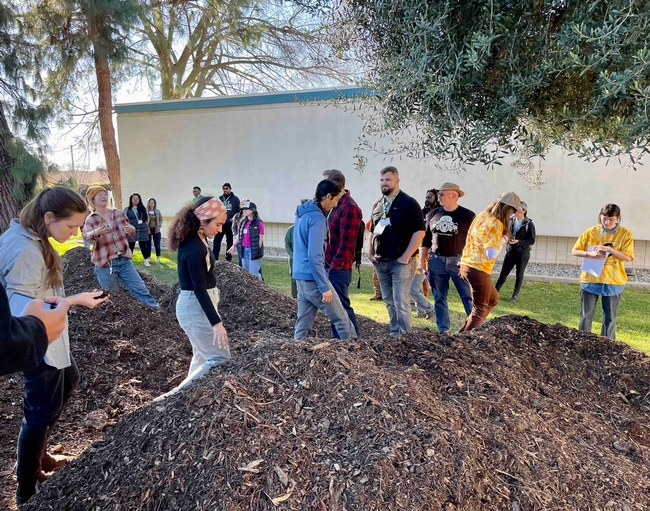
Of the two afternoon composting site tours, I opted for the one that included Temple Beth Israel in Pomona, Claremont Friends Meeting, and the Buddhist Tzu Chi Foundation in San Dimas. Temple Beth Israel was the newest composting site we visited. There are an impressive number of raised beds on the property (around 20 from what I remember), where onions, herbs, greens, and other vegetables are grown in partnership with Uncommon Good. Ten small businesses provide food waste for composting next to the planting beds.
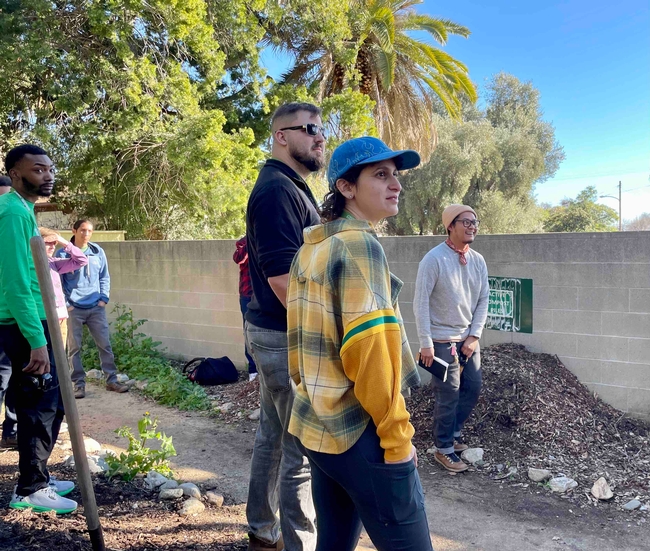
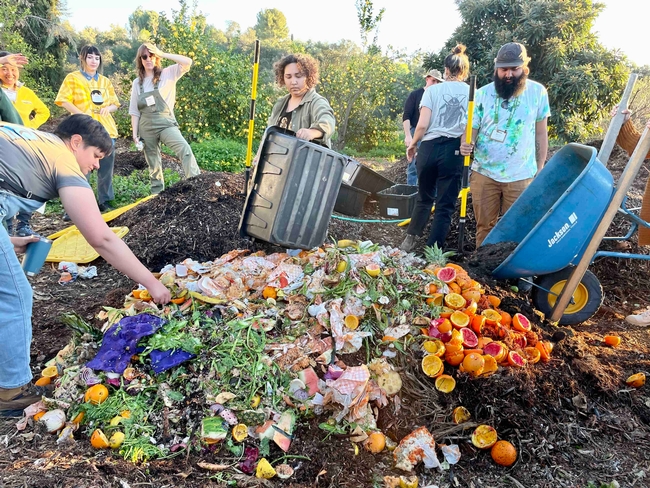
If you want to learn more about composting, check out our UCCE San Bernardino YouTube channel or contact the Master Gardener Helpline at mgsanbern@ucanr.edu or (909) 387-2182.
Have you enjoyed reading this blog? Do you have questions? Need help with school gardens or environmental education? Feel free to contact me at dschnur@ucanr.edu. I look forward to hearing from you.
